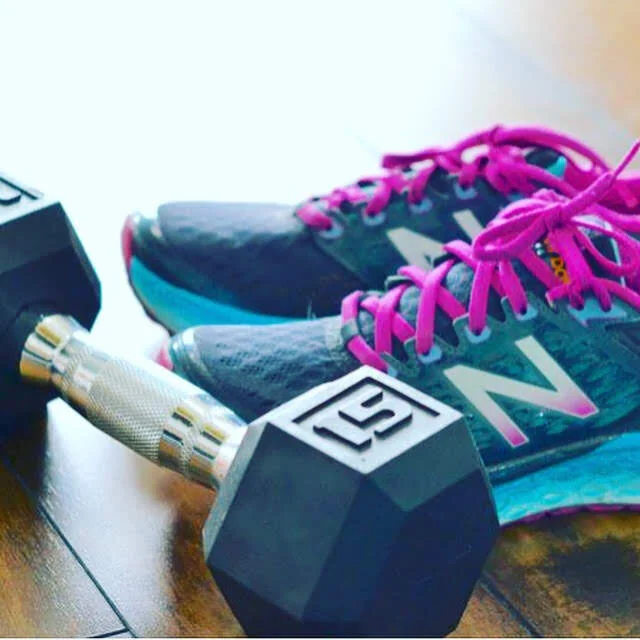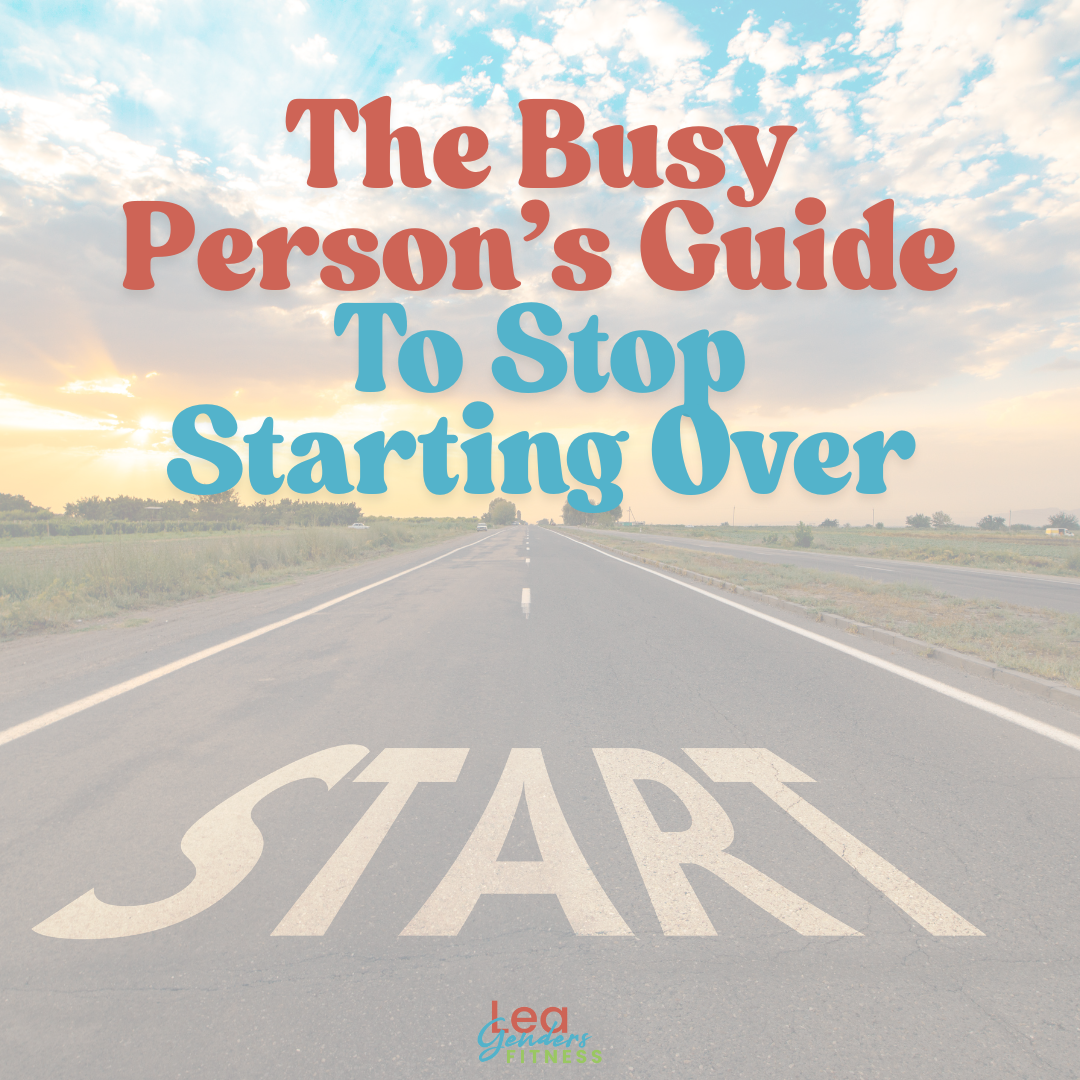Have you been following along with my 52 Healthy habits series? Each Monday we talk about the habits we can develop to in order to live a healthier life. Habits are the building blocks of a healthy lifestyle. You don't have to change all your bad habits or attempt to develop a ton of new healthy habits all at once. In fact, trying to do too much at once can cause overwhelm and ultimately, failure. We, as humans, don't respond well to a lot of changes at once. A better strategy is to tackle one new healthy habit and take the time to cultivate it. Once you have a handle on it, add in another. The slow build approach is a much more sane and sustainable approach over the long term. After all, this is a healthy lifestyle, not a healthy 21 days, healthy 12 weeks or even a healthy year. We want to make changes that stick for life. Are you in? Let's get to it.
Sometimes the easiest way to change those behaviors that don't bring us closer to our goals, is to make healthy swaps instead. Good or bad, we have already have developed the habit, now we can work on how to make that habit healthier.
This post contains affiliate links. That means if you click on a link in this post and make a purchase I make a small percentage of the sale with no additional cost to you. No one is getting rich here, it just helps with the costs associated with running (pun intended) this blog.
TEA INSTEAD OF COFFEE
I may be biased here because I am on a break from coffee and feeling great, but I have found swapping my regular morning coffee for hot tea was an easy transition (I mean, after the debilitating headaches went away, of course.) Drinking a hot beverage in my favorite mug was a habit, I replaced that hot beverage for a healthier alternative and now drinking hot tea is my new habit. I go on a break from coffee once a quarter in order to reset my caffeine tolerance, so I am not so dependant on it for those early morning wake up calls. (I was going to say early morning workouts, but let's be real, I haven't been up for an early morning workout in months.)
CINNAMON INSTEAD OF SUGAR IN COFFEE
I love my coffee (which is why I do a reset once a quarter, so I can fully enjoy it again after my break). Drinking coffee is not a bad habit in itself. Caffeine has its health benefits. Usually it's what you add in your coffee that can be the problem. When you add processed flavored creamers and sugars, or order the 500 calorie barista-made drink, you're just consuming empty calories. There's nothing wrong with treating yourself once in awhile, It only becomes an obstacle to achieving your goals when it's a habit.
Swapping cinnamon for sugar is a great way to add flavor and spice to your black coffee without adding sugar.
SELTZER WATER INSTEAD OF SODA
I was a Diet Coke fanatic for most of my adult life. I wasn't able to quit my several-a-day habit until I found a suitable replacement. Enter seltzer water. I swapped my daily Diet Coke for the fizzy goodness of seltzer water. It's important to note that seltzer water isn't sweet like soda because it doesn't have sugar or artificial sweeteners. It took some time for my taste buds to adjust, but now it is an easy choice for life.
PLAIN YOGURT WITH FRUIT INSTEAD OF YOGURT CUPS
I've said this before, but it bears repeating now. Most of the yogurt cups you find in the grocery store are not health foods. They often have as much sugar as ice cream (It's no wonder they taste so good!) and riddled with processed ingredients, but are regularly marketed as a healthy choice. Of course, there are exceptions. I like the Siggi's brand for a healthier alternative, it is lower in sugar and higher in protein. Most of the big name yogurts on the grocery store shelf are junk foods masquerading as health foods.
Swap your yogurt cups for a tub of plain Greek yogurt. Plain Greek yogurt is high in protein. Add fresh or frozen berries, fruit or natural granola. I bought a 8 pack of reusable small plastic cups with lids in order to pack my healthy yogurts for lunch.
GREEK YOGURT INSTEAD OF SOUR CREAM
Yeah, I thought it sounded a little weird too, but you'll hardly know the difference. Use plain Greek yogurt instead of sour cream in recipes, salad dressings, dips and of course, on tacos. It has more protein and fewer calories than sour cream. Our favorite way to use Greek yogurt in a recipe is in our turkey mushroom caps.
OATMEAL INSTEAD OF CEREAL
No one ever mistook Fruity Pebbles as a health food, but even the healthiest-marketed boxed cereals usually have too much sugar, too many processed ingredients or are too low in nutrients. If you enjoy it, it's fine as an occasional treat, but there are better choices for your daily breakfast habit. A great swap for boxed cereal is old fashioned oatmeal flavored with cinnamon, berries and/or fruit. Add a scoop of protein powder and chopped nuts for a balanced breakfast of healthy carbohydrates, proteins and fats.
TAKE A WALK INSTEAD OF DESSERT
We all love our dessert and it should be enjoyed once in awhile, but a better after-dinner habit is a daily walk. I know a walk doesn't sound as enticing as a piece of pie, but hear me out. A quick daily walk after a meal helps with digestion, gets you moving and burning calories with minimal impact on your body. You get some fresh air, quality time away from electronics and your dog will thank you too. If you think you don't have time, start with five minutes. Walk to the end of the block and back. Then over time you can work on building up duration and distance.
FROZEN BLENDED BANANAS INSTEAD OF ICE CREAM
Seriously, have you tried this? Take two to three frozen bananas and let thaw slightly before adding to a food processor or blender. Blend slowly until they have an ice cream-like consistency. Add protein powder, cocoa powder or peanut butter powder for flavoring. Share with a friend. A delicious healthy swap for ice cream.
SPINACH INSTEAD OF ICEBERG LETTUCE
Swap that iceberg for a nutrient-dense alternative, like fresh spinach. Spinach has vitamins, minerals, fiber and even boasts a bit of protein. It is much more nutritious than iceberg and less expensive than those pre-bagged lettuce mixes. We buy a few bunches of spinach and use in our salads all week.
SPAGHETTI SQUASH INSTEAD OF PASTA
I saved the best for last. I love spaghetti squash as an alternative to traditional pasta. We add low-sugar pasta sauce, parmesan cheese and ground turkey and we can hardly tell the difference from our regular spaghetti dish. If you have a spiralizer, you make spaghetti-like noodles out of almost any vegetable.
What are your favorite healthy swaps? Did I miss any? Did I give you any ideas? Pick one to try and let me know how it goes.
Like this post? It helps me a lot when you share with your friends and followers.

































When progress feels slow or uncomfortable, it’s tempting to chase something shiny: a new diet, a new plan, a total overhaul. But what if the problem isn’t your plan? What if it’s just the part where it gets hard? In this post, I’m sharing the simple mindset trick I use to stay focused when distractions pop up, and how the same approach can help you stop starting over in your health and fitness goals.